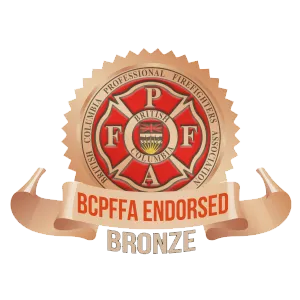Treatment Modalities
Treatment Modalities
Our highly-trained clinical team will customize treatment tailored to your needs.

Our highly-trained clinical team will customize treatment tailored to your needs.

Individual Therapy
In our program you will be matched with a Registered Clinical Counselor to address one on one treatment goals indentified through the initial assessment completed by our Head Program Psychologist. Customized treatment modalities will be implemented in individual therapy sessions.
Group Therapy
The goal of Group Therapy is to support each other and understand you are not alone. Sharing information and helping others in a group setting offers a safe and supportive environment to gain a greater understanding of one’s self, acceptance and learn effective coping skills to maintain a healthy life balance. This can help foster feelings of success and accomplishment.
Expressive Art
Expressive Art is a form of expressive therapy that uses the creative process of making art to improve a person’s physical, mental, and emotional well-being. The creative process involved in expressing one’s self artistically can help people to resolve issues as well as develop and manage their behaviors and feelings, reduce stress, and improve self-esteem and awareness. You don’t need to be talented or an artist to receive the benefits, and there are professionals that can work with you to dive into the underlying messages communicated through your art, which will aid in the healing process.
Expressive Art can achieve different things for different people. It can be used for healing, treatment, rehabilitation, psychotherapy, and in the broad sense of the term, it can be used to massage one’s inner-self in a way that may provide the individual with a deeper understanding of him or herself.
Cognitive Behaviour Therapy (CBT)
This approach involves the development of mental and behavioural coping strategies in dealing with the fears and emotional triggers related to the incident. It is also one of the treatments of choice for depression.
Emotion Focused Trauma Therapy (EFTT)
While exposure therapy has been found to be helpful in reducing many PTSD symptoms, EFTT has been found to be effective in addressing experiences which may be secondary to trauma, such as victimization, anger, loss, or self-condemnation. Emotion Focused Therapy has also been shown to be one of the most effective methods to treat depression.
More on Emotion Focused Trauma Therapy
Exposure Therapy
This approach addresses the coping strategy of avoidance by gradually exposing people to memories of the incident(s). Initially, the exposure is via visualization. Emotional reactivity to memories (and reminders of) the incident(s) are reduced, as well as the frequency of flashbacks. If the individual needs to return to the environment in which the event(s) occurred, real-life exposure is implemented when there is sufficient comfort through visualization. Strategies are set very conservatively, and client-driven, so comfort will be maximized.
Eye Movement Desensitization and Reprocessing (EMDR)
Another exposure-based therapy is EMDR, which has been shown to be approximately as successful as graduated exposure in the scientific literature. This also involves a desensitization process through visualization, with a gradual increase in the ability of the individual to remember the incident without a strong emotional response.
Biofeedback
Heart rhythm biofeedback allows the individual to train heart rate rhythms to produce states of coherence through breath training. Biofeedback uses brain waves to train the brain to calm itself. These are advanced methods to reduce arousal, anxiety and irritability which are associated with PTSD.
Begin the journey
toward getting your life back.
If you think this program is right for you or your loved one, contact us today.


